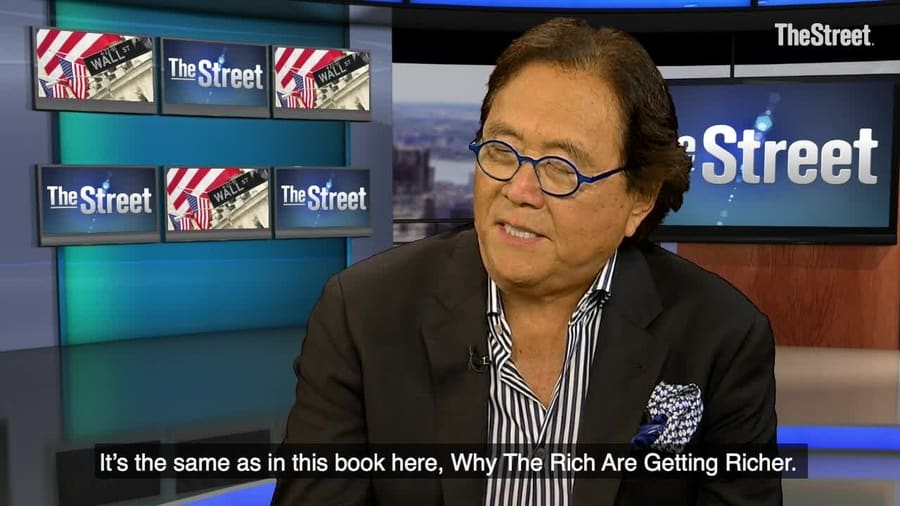
Some noteworthy prophets of doom, such as the renowned economist Nouriel Roubini, say the economy and financial markets are headed for a meltdown.
The Federal Reserve’s interest-rate hikes and the government’ burgeoning debt burden will trigger the crisis, the bears say. The Fed has raised rates by 3.75 percentage points since March and is expected to go at least another 1.25 percentage points.
Meanwhile, gross federal government debt totals $31 trillion, equal to 124% of GDP, total economic output.
One commentator with an extreme forecast of gloom is Robert Kiyosaki, co-author of the best-selling 1997 book “Rich Dad Poor Dad.”
The book stresses the importance of financial education and financial independence. It also recommends building wealth through investing in assets, including real estate, and starting and owning businesses.
Kiyosaki offered his dark thoughts in a tweet. The first sentence is relatively benign. “Many of you know I do not invest in equities, bonds, [exchange-traded funds] or mutual funds,” he writes.
Biggest Bubble Ever
But then comes the hot sauce. “Please DO NOT listen to what I’m going to say next,” Kiyosaki says.
“I would get out of paper assets. The world economy is not a “Market.” I believe economy is the biggest bubble in world history. God have mercy on us all.”
While the end of the tweet is crystal clear, the middle is confusing. Why does he say “don’t listen” to his own advice? Maybe he means that those of his readers who already have exited paper assets have no need for his advice.
Also unclear is what he means by saying the world isn’t a “market.” I have no idea what he’s getting at there.
As for other pessimists, Roubini, emeritus professor of economics at New York University, has the nickname Dr. Doom.
He notes that since World War II, there has never been a case where the Fed achieved a soft economic landing with inflation above 5% and unemployment below 5%.
Consumer prices jumped 7.7% in the 12 months through October, and unemployment registered 3.7% that month.
Roubini Sees a Hard Landing
The data “point to a sharp slowdown that will grow even worse with monetary-policy tightening,” Roubini said. “A hard landing by year’s end should be regarded as the baseline scenario.” A hard landing means Fed rate hikes will cause a recession.
While some economists foresee a short and mild recession, Roubini doesn’t. Rather, he expects a “protracted stagflationary debt crisis.” Stagflation combines a slowing economy, rising unemployment and sharp inflation.
And “the latest distress in financial markets – including bond and credit markets – has reinforced my view that central banks’ efforts to bring inflation back down to target will cause both an economic and a financial crash,” Roubini said. The Fed has an inflation target of 2%.
As for stocks, they “have not yet fully priced in even a mild and short hard landing,” he said.
“Equities will fall by about 30% in a mild recession, and by 40% or more in the severe stagflationary debt crisis that I have predicted for the global economy.” The S&P 500 has slid 16% year to date.
Already, “signs of strain in debt markets are mounting,” Roubini said. “Highly indebted firms, shadow banks, households, governments, and countries are entering debt distress. The crisis is here.”







